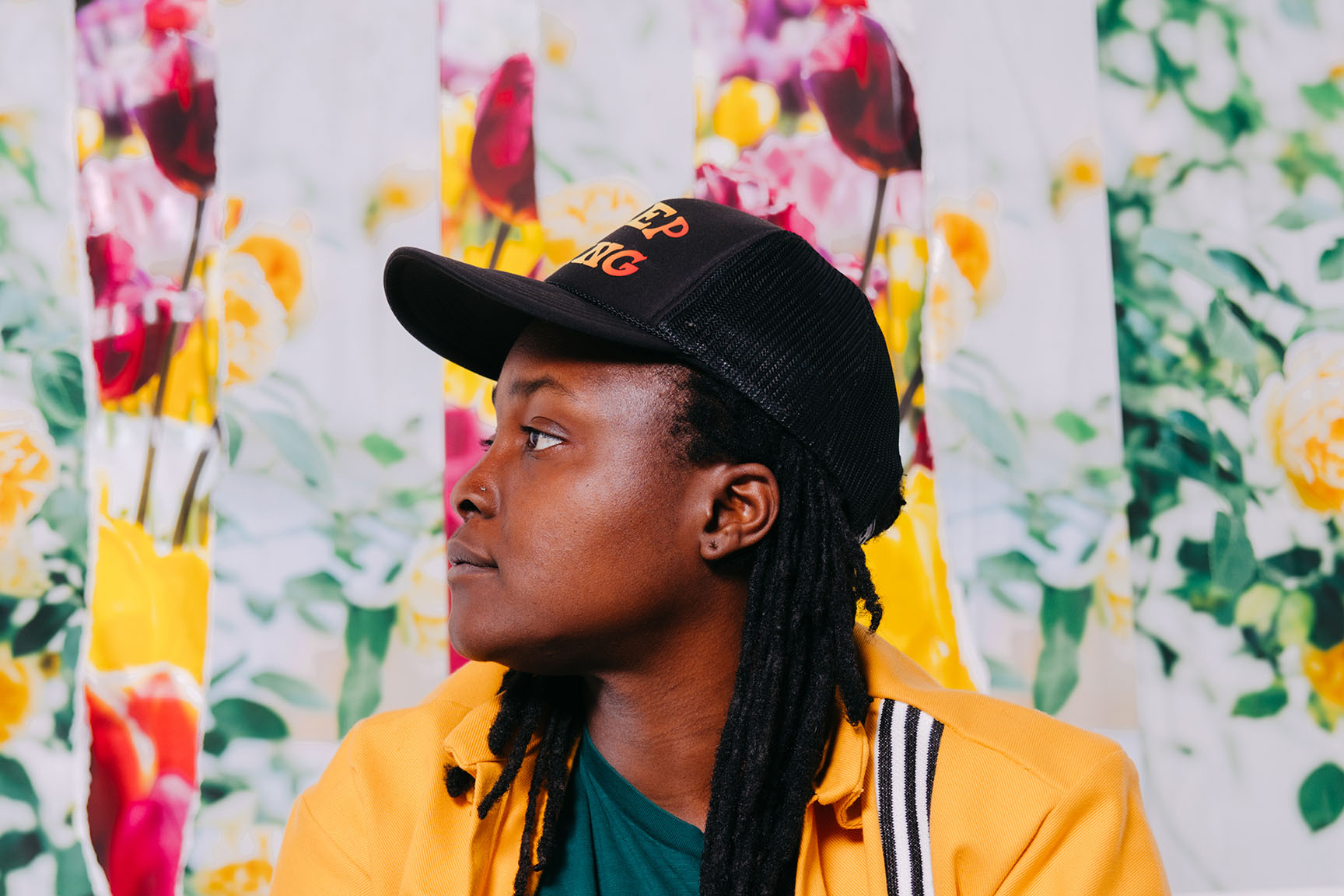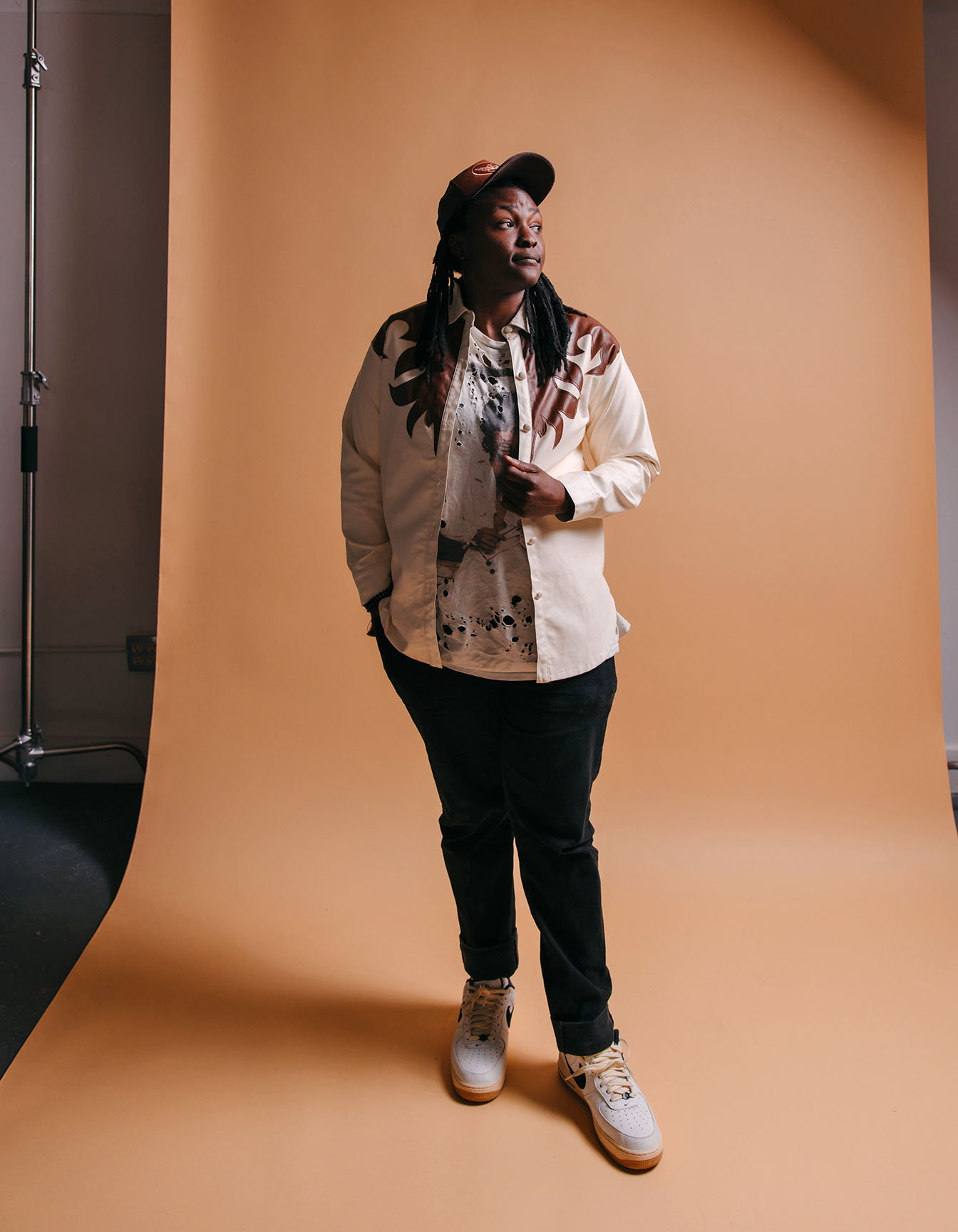
Joy Oladokun was all of 10 years old when she first witnessed the performance that would forever change her life.
The child of Nigerian immigrants growing up in a mostly white Arizona farming community, Oladokun and her family sat before their television set watching a video of Nelson Mandela’s 70th birthday tribute concert, which had originally been broadcast in 1988 to a global audience of more than 600 million people.
Several dozen musical acts, including Stevie Wonder and Bruce Springsteen, played Wembley Stadium that day in honor of the South African activist and politician. But the performer who stood out most for the future musician was the singer-songwriter Tracy Chapman. Here was a black woman, armed with only her voice and acoustic guitar, performing songs like “Fast Car” and “Talkin’ Bout a Revolution” in front of a cheering crowd of 72,000 people.
“As a little kid sitting in front of a TV screen, watching it all unfold and being able to see Tracy Chapman play this arena, it was just an inspiring moment,” recalled Oladokun, who began begging her parents for a guitar soon after. “And it wasn’t just about how amazing Tracy Chapman was. It was also about the power of a concert to help the planet, if that makes any sense. And I think that, as a kid, that set me on my path.”

Last year, that path came full circle during the 32-year-old artist’s international tour.
“When I was in South Africa, all I wanted to do was go to Soweto and see Nelson Mandela’s house,” said Oladokun, describing it as “a modest beautiful little home where you can stand in the kitchen, read letters he got thanking him for his encouraging words, and see the beautiful gifts he was sent and manuscripts of the beginning of his books.”
“I just walked through in absolute silence,” she said of what, for her, was a kind of religious experience. “I thought about what this person did during their time, and the ripple effect it had on others. It was like a reminder that we make history as much as we learn it. Just being in his home, you can tell that he was just like a dude doing stuff he believed in. And if there’s anything I try to be, it’s a dude doing stuff I believe in.”
Oladokun, a self-described “Black queer, masc-presenting, folk-pop star,” has performed at a number of high-profile events, ranging from the Newport Folk Festival to the White House signing of the Respect for Marriage Act. It was at Newport that Oladokun, who currently lives in Nashville, began to realize that her life and career had turned a corner.
“Everybody else was behaving as if I had hit some landmark,” the artist said of the festival, while noting with a laugh that her parents were just happy that their daughter got a job. “I’m a slow processor, so it didn’t hit me until somewhere about the third plate of oysters with Brandi Carlisle, and I realized that I was playing where Bob Dylan played, and I watched Allison Russell do this amazing Odetta tribute. It was just such an amazing year at Newport and I was like ‘I think something is changing.’ But again, slow processor. So I just put a pin in that and went on with the rest of the tour.”
A soft-spoken artist with hard-won convictions, Oladokun isn’t one to mince words. Praised by “Rolling Stone” magazine as “Nashville’s most low-key musical revolutionary,” she believes the town has sold out its musicians and its heritage.
“I think it comes down to the erasure of the fact that it wasn’t because of country music that Nashville became known as ‘Music City,’ it was because of the Fisk Jubilee Singers,” said Oladokun of the gospel group that toured the world singing black spirituals in the aftermath of the Civil War. It was after their performance at Buckingham Palace that Queen Victoria famously said that the group must be from a city of music.
“I think Nashville has lost its way,” said Oladokun, who featured gospel’s legendary McCrary Sisters on her 2023 Proof of Life album. “I’m like, let’s use real instruments and give a sh*t about real songs and real story telling and then marry that with the fact that we have drum machines now. But Nashville is just so stuck on making a few dollars from a few people. If it continues on this trajectory, I think that it will just be a cute little ghost town.”
Meanwhile, back in the outside world, Oladokun is out on the road promoting last October’s poignant Pictures from a Crowded Room album, a tour that began with a Minneapolis date at the Prince-identified First Avenue nightclub.
“I packed my lucky Prince shirt that my Mom got me at Kohl’s,” Oladokun said. “Prince was a very, very inspirational figure to me. Every once in a while, I check my compass by thinking ‘What would Prince do?’”
Most dates on the tour find Oladokun playing a short acoustic set followed by a full-band performance. “I’m going to open my own show for like half an hour, and then we’re just gonna rip.”
“As an introvert, I don’t go and stand before thousands of people because I love people looking at me,” said Oladokun of her performances at larger venues. “I do it because of all the letters and emails and flowers that I get from black or queer or, you know, ‘insert marginalized group here’ people, who go ‘thank you for speaking out about what it’s like to be in this world with a body that’s not in the majority.’ I’m doing this for people who feel like they’re the only black queer kid in their Arizona high school who watches too much ‘Star Wars’ and listens to too much Led Zeppelin. You know, that person who feels that way, I exist for them.”
